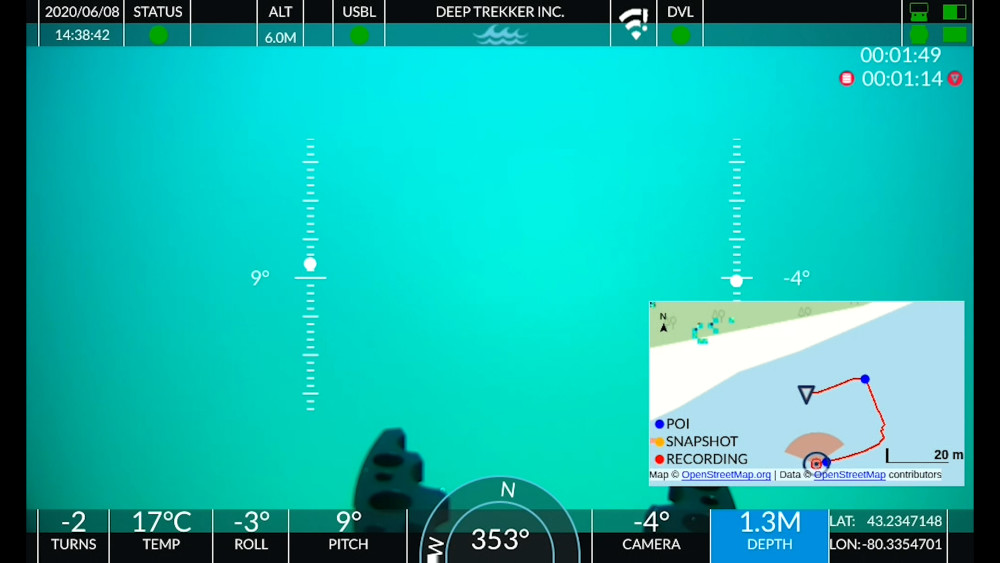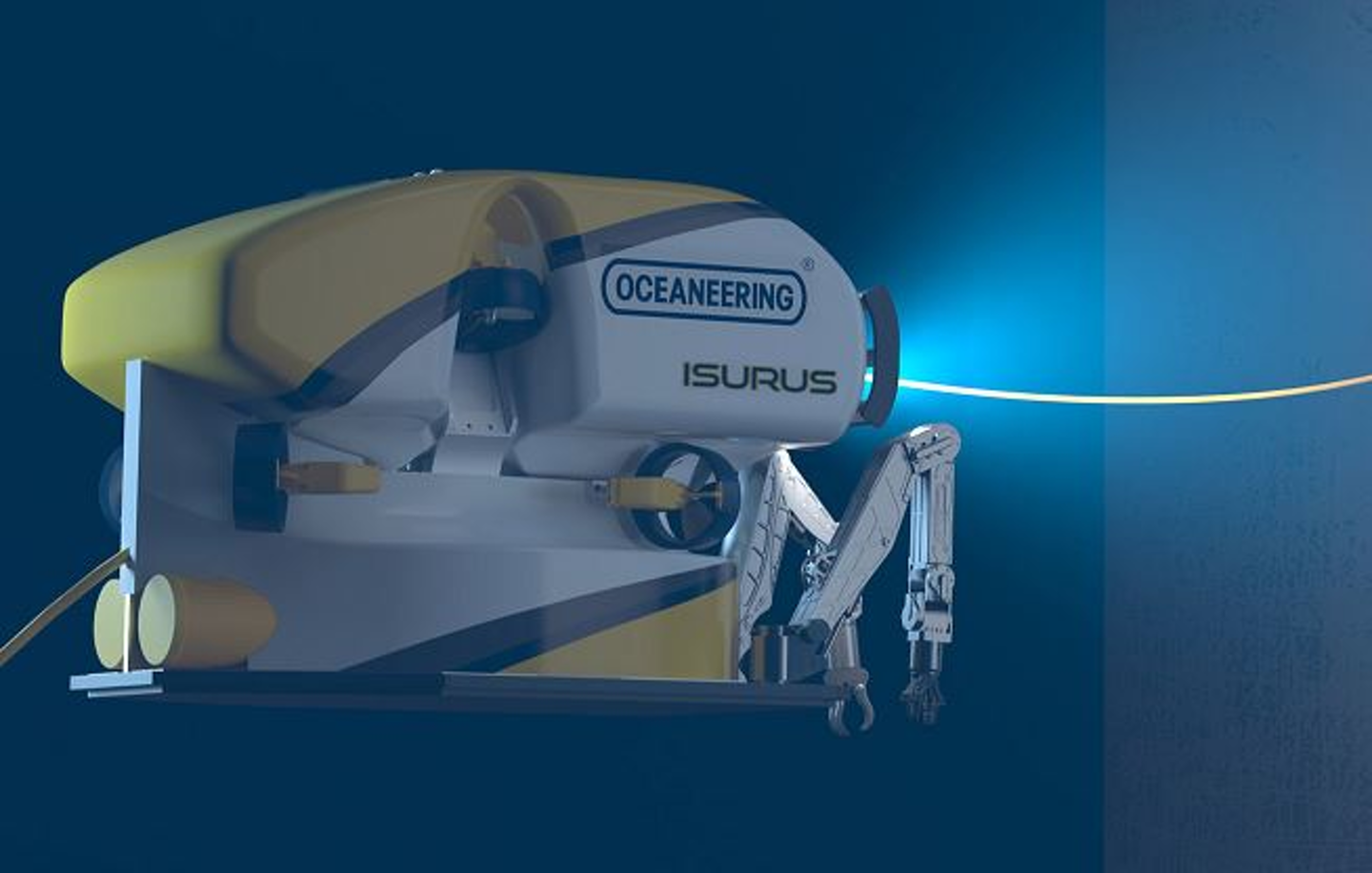Home › Forums › ROV › ROV Rookie Corner › 16th edition
- This topic has 17 replies, 10 voices, and was last updated 17 years, 3 months ago by
Alex Kerr.
-
AuthorPosts
-
March 28, 2007 at 6:33 pm #631
STU
ParticipantAlreet lads. Ive just enrolled to do my 16th edition (Electrics). Is this of any use on a CV as opposed to a HNC, etc?
Im dead curious me.
STU
March 28, 2007 at 7:05 pm #11287subseascott
ParticipantAlright, not too sure if I’m 100% right here but the way that I’ve allways seen the 16th eddition is that it’s more specific to sparkies for working on site & @ remote locations to provide information on regulations. More of an addition to the more relevant qualification of an HNC / HND that say a base tech would posses. An HNC / HND would give you a far broader spectrum of relevant knowledge if you are looking for a qualification to enter the ROV industry with. Nobody cares how far you cooker socket has to be from you hob when you’re doing a main lift re-term!!!
March 28, 2007 at 9:02 pm #11288Ray Shields
ParticipantI would say an HNC would be better.
16th edition is about wiring houses, etc. it is about carrying out work to specific regulations – which are not applicable in most (but not all) situations offshore. They are covered by different regs.
Would be a good fallback as a sparky when your back home tho!
March 29, 2007 at 5:17 am #11289deepseacon
ParticipantWell thats all we need is a another plumber with the 16th Edition???
Try Part P first maybe of more use to you being a pipe basher
NON ROV RELATED TOPIC
March 29, 2007 at 6:15 am #11290TheProphet
ParticipantHNC ONC 3Degrees record who actually gives a fuck what quals you have, and even if you have them how many times have you been asked to show proof of them.
I have seen guys with quals as long as there arm but when it comes down to a days graft they don’t want to know.
You can have all the quals you want but can still remain a useless bastard.
Just because you have a bit of paper doesnt mean you can cut it with your wanking spanners!March 29, 2007 at 7:06 am #11291STU
ParticipantWOOAAWWWW lads. I might be a plumber but Im also a heating engineer who regardless of wanting to get offshore on ROV’s would require the 16th edition anyway. All im asking is whether or not it would come in handy on a cv without actually having to do the hnc or hnd. I didnt realise that plumbers were disliked in this game,or am I reading into this the wrong way.
Prophet, I find it hard to beleive that you walked into your job without any qualifications. If you have none then you have been extremely lucky or you were up someones arse at the time. I have sent many cv’s off to prospective employers because I dont know anyone in the game who’s arse I can crawl up. All the feedback I have received mention more experience or quals in electrical work. I do actually have the experience but I dont have it on paper thats all.
As far as grafting is concerned, you will never come across an individual that grafts as hard with as much enthusiasm and loyalty. Let me crawl up your arse so you can put me to the test, and I can show you. I aint an academic or a Tefal head, but I do have brains and common sense.
STU
March 29, 2007 at 7:24 am #11292Mike Kidd
ParticipantKung Fu-tse (Latinized as Confucius) said "You can send a turnip around the world, he will return well travelled but still a turnip" ❓
March 29, 2007 at 8:17 am #11293sean
ParticipantI did 16th Edition course a couple of years back and on the first day of the course it was stated what the Regs did and did not apply to and one thing they didn’t was offshore installations. However its a qualification which shows you have a good understanding of electrics. I have heard of a bloke with no relevant background but with 16th Ed regs who got a job on the sole basis of that qualification
March 29, 2007 at 8:27 am #11294STU
ParticipantThanks for that Sean. Thats all I needed to know really. I know 16th edition has nowt to do with offshore but it shows that an individual atleast has the capacity to work with cabling, regulations and technical matter. I would expect the company I was employed by to teach the relevant stuff for offshore once you were employed as a trainee.
Thanks,
STUMarch 29, 2007 at 8:41 am #11295subseascott
ParticipantI think that this is half the problem at the moment. Potential candidates for ‘Trainee P/T’ positions don’t know the difference between a trainee & an apprentice. People entering a trainee position on any line of work off shore (not just ROV’s) should have the relevant entry level skills obtained from apprentiships & such other qualifications / experience. What use is somebody that can’t pipe bend, solder, trace schematics etc. etc. fair enough other skills obviuosly come into the equation but these should be a fundemental requirement not just something that shouold be expected to be picked up along the way……
March 29, 2007 at 9:39 am #11296temp
ParticipantStormrider
As you’ll find out when do your 16th edition course, literally on the first page of the regs it specifies where it doesn’t apply, offshore being one of them (also mines, trains, aircraft, ships etc). This is because more stringent regs apply to these areas (although sometimes I wonder!).
It is however a useful thing to have for onshore work, and almost seen as an essential for much electrical-related work in UK now, whether a sparky or not. Even as an electronics or datacomms etc guy, if you are connecting your equipment into the mains i.e installing fused spurs, companies often like you to have it (covers their ass). Part P now required for domestic stuff.
You can do 16th ed in a 2-3 day short course (or over 16 weeks of 1 evening a week etc), so you can appreciate that in no way can you see it as an alternative to an HNC etc, which will take maybe a couple of years part time or 1 year full time study.
It does not actually contain any practical work, and the test is a multi-guess type open book.
There are plenty of practically-oriented short courses available in electronics, industrial electrics, hydraulics etc., if you want to beef up your knowledge and your CV and increase your employability, or longer ones such as some of the City & Guilds courses. As far as higher level courses/qualifications, companies often see things like ONC or HNC as a minimum requirement at the initial sift through applications, plus of course previous relevant practical experience.
Not sure what selection criteria the ROV companies are using right now. As mentioned already, being able to prove that you have practical technical skills is more useful than having reams of paper qualifications.
Unfortunately, it is easier for HR-type people who may be doing the initial application paper sift to eliminate people who have not got certain minimum qualifications, before you get a chance to convince more technically minded people at interview that you will actually be able to do the job, or have potential to learn. For instance an HNC course actually does not contain that much practical work, but is often used as a minimum selection criterion.
I’ve had HNC and also degree – qualified trainees straight from college (there was a spate of this a few years back) who astonishingly have never soldered or even know how to use a multimeter or do basic fault diagnosis, even though they could tell you in great detail how a circuit works. Qualifications are better when combined with some practical training course/apprenticeship etc.
Hope this info helps. Pity about some of the posts jumping down your neck, no need when you are simply asking for advice.
temp
March 29, 2007 at 9:52 am #11297subseascott
ParticipantTaken from the faq section of this website:-
· What Qualifications Do I Need to Get Into ROVs?
ROV people tend to be in one of two categories:- Electrical/Electronic or Mechanical/Hydraulic.
When you first start out in ROVs you will tend to be one or the other. As you progress in your career you will have to learn about the other. The job title is Pilot TECHNICIAN. Some people tend to forget this! By the time you reach Sub Engineer Level, you are expected to know how to fix ALL parts of the ROV system, both electrical and hydraulic.
The best qualifications to have are either experience (in the form of Armed Forces training or a "proper" apprenticeship) or vocational qualifications such as ONC, HNC, NVQs etc.
Degrees are not particularly helpful, as it is thought that there is not enough practical experience gained (someone who had a Degree in Engineering – "he could tell you the square root of an orange but he couldn’t peel it").
Likewise, qualifications in Marine Biology or Environmental studies, just because it involves the sea, it will not help you fix an electrical problem on an ROV.
How many other such posts have there been identical to this over the past few months?
I didn’t mean to jump down anybodys throat, but to be honnest there’s no point in painting pretty pictures for somebody if that’s just the way it is. The industry is boyant just now & has been for the past year +/- which has been reflected by the major recruitment drive that pretty much all major companies have had on of late. I garuntee that if you ask the likes of Mr Sheilds just how many c.v’s a company has been recieving a month, more so when a post is advertised it highlights how popular & competitive an industry it can be. Especially when work dies down!!!March 29, 2007 at 9:58 am #11298STU
ParticipantThanks lads. Im taking this all in.
STU
March 29, 2007 at 10:04 am #11299temp
ParticipantYeah, sometimes wish people would read the FAQ’s and threads relating to trainees and applying for ROV work, as often seem to get same questions again and again, when a lot of info is on the site already.
I don’t mind replying if have time, as I wish there had been such a thing as this when I was trying to get a start in the industry. Had to work hard to find out any info in them days, aye people today have got it too easy with this internet thing.
March 29, 2007 at 12:15 pm #11300Cabledog
ParticipantStormrider,
The best reason for you to do the 16th ed has been posted on here today. "For when the work dies down" The chances are that when this happens those of us who have just come in will be first out until things pick up again. It helps to have something to fall back on.
Good luck in the hunt.
-
AuthorPosts
- You must be logged in to reply to this topic.



